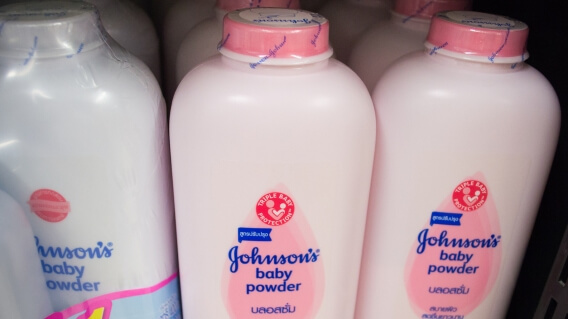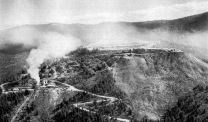Johnson & Johnson Ends Worldwide Sale of Talc-Based Baby Powder
Legislation & LitigationWritten by Tim Povtak | Edited By Walter Pacheco

Against the wishes of its shareholders, Johnson & Johnson announced Aug. 11 that it would end the worldwide sale of talc-based Johnson’s Baby Powder in 2023.
The company had already discontinued the sale of the talc-based version of its iconic baby powder in the U.S. and Canada in 2020 when it became the target of thousands of lawsuits. Most claimed J&J’s talc was contaminated with toxic asbestos fibers and causing serious health problems, including mesothelioma and ovarian cancer.
Instead of using talc, the company will transition to a cornstarch-based product, which already is being sold in several countries around the world.
This latest announcement comes just four months after Johnson & Johnson stockholders rejected a proposal that would have ended the worldwide production and distribution of the product.
Company executives overruled its shareholders with this decision.
“We continuously evaluate and optimize our portfolio to best position the business for long-term growth,” the company statement said. “This transition will help simplify our product offerings, deliver sustainable innovation, and meet the needs of our consumers, customers and evolving global trends.”
J&J Still Insists Talc Is Safe
Despite the new worldwide stoppage, Johnson & Johnson continues to insist the product is safe to use and poses no health risks.
Scientific studies of talc-based Johnson’s Baby Powder have been mixed. Some have shown that women who use the product regularly increase their risk of ovarian cancer. Other studies have not shown a risk.
“Our position on the safety of our cosmetic talc remains unchanged,” the statement said. “We stand firmly behind the decades of independent scientific analysis by medical experts around the world that confirms talc-based Johnson’s Baby Powder is safe, and does not contain asbestos, and does not cause cancer.”
The courts have ruled otherwise at times.
In 2021, the U.S. Supreme Court rejected a request by Johnson & Johnson to overturn a Missouri state court ruling from 2018 that awarded 22 women a combined $2.1 billion in damages caused by talc products.
Earlier this year, however, a New York State Supreme Court reversed a 2019 decision that awarded a woman $120 million in damages for ovarian cancer she claimed was caused by talc contaminated with asbestos in the Johnson & Johnson product she used.
Johnson & Johnson also claimed its product was safe in 2020 when it ended the sale of talc-based powder in North America amid the avalanche of legal cases, attributing the change to falling demand and “misinformation.”
The stoppage also was prompted by the U.S. Food and Drug Administration, which discovered small traces of asbestos in baby powder samples taken in 2019.
Avalanche of J&J Lawsuits Still Pending
Johnson & Johnson is one of America’s richest companies, with a market share estimated at $500 billion.
There are close to 40,000 talc lawsuits pending today from consumers and cancer survivors claiming the talc products are causing health problems. Only a small number of those involve malignant mesothelioma, a rare cancer caused almost exclusively by the inhalation or ingestion of microscopic asbestos fibers.
According to its own financial reports, J&J was facing $3.5 billion in talc-related litigation and settlements in 2021. It also had set aside almost $4 billion to handle future cases.
Prompted by the U.S. Supreme Court rejection of its request to overturn the Missouri billion-dollar ruling in 2021, J&J created a new subsidiary, LTL Management LLC, to absorb all its talc liabilities and limit its legal exposure.
The subsidiary immediately filed for bankruptcy while listing assets at $10 billion. The controversial move, which allows a company to separate assets from liabilities, would create a trust fund to more easily resolve the thousands of lawsuits.
Future of J&J Litigation Unclear
After considerable debate, the bankruptcy strategy was approved early in 2022 by a federal judge in New Jersey.
The bankruptcy filing, which would involve a trust fund worth an estimated $3 billion, has left almost all of the pending lawsuits on hold.
J&J’s reorganization process is still being appealed by plaintiff lawyers in a federal appellate court and is currently being scrutinized by Congress. The controversial bankruptcy strategy, which was legalized 30 years ago, has been tried only a handful of times by other companies looking to avoid huge liabilities.
This latest move to end all sales of talc-based products could play a role in determining outcomes of future court cases, but only if the bankruptcy filing is prohibited.






